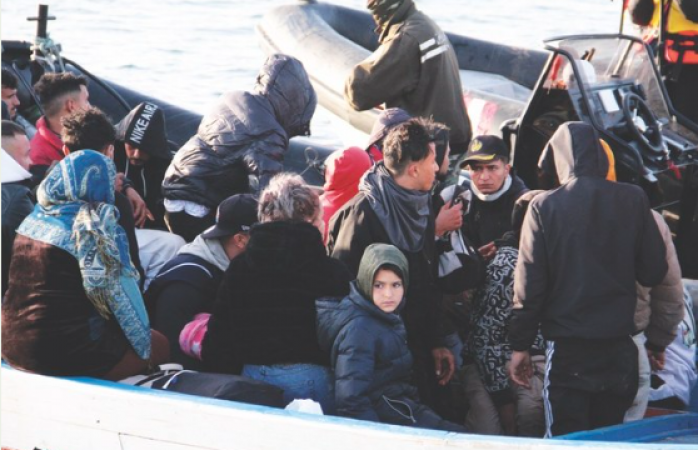
Tunis: A national guard official reported on Friday that 41 bodies had been recovered by the Coast Guard from Tunisian waters, bringing the total number of migrants killed in shipwrecks off the country's coast in the previous 10 days to 210.
According to Houssem Eddine Jebabli, the decomposed state of the bodies indicated that they had been submerged for a number of days. Over such a brief time, the total number of fatalities was unprecedented, he claimed.
Boatloads of migrants, mostly from sub-Saharan Africa, Syria, and Sudan, trying to cross into Italy from Tunisia have increased significantly in recent months, in part because of a clampdown on departures by Libyan authorities. The nation is struggling to stem the tide, and some cemeteries are running out of room for the dead.
Tunisia has long been a favourite stopping point for migrants making the perilous sea journey from North Africa to Europe. Its coastline is less than 150 km from the Italian island of Lampedusa.
According to authorities, mortuaries and hospitals in the crucial launchpad city of Sfax are overflowing with bodies of migrants who perished while attempting the perilous sea crossing from Tunisia to Europe.
"On Tuesday, we had more than 200 bodies, well beyond the capacity of the hospital, which creates a health problem," said Faouzi Masmoudi, a justice official in the port city where the main mortuary for a region of about a million people is located.
"The large number of corpses washing up on the shore is a problem. They are multiplying, and we have no idea who they are or what shipwreck they came from.
Also Read: Sudanese NHS doctor turned down a UK rescue flight
Funerals are held "almost every day," according to Masmoudi, in an effort to ease the burden on hospitals.
At least 30 people were laid to rest on April 20.
A few days later, numerous additional bodies were found at sea.
Before burial, DNA swabs are taken from each body to aid in potential relative identification, he explained.
More than 220 dead and missing people have been reported this year as of April 24. Most of them are from sub-Saharan Africa, according to Romdhane Ben Amor of the Tunisian Forum for Economic and Social Rights, or FTDES.
According to him, more than 75 percent of migrants who leave Tunisia do so from the 90 km north of Sfax and Mahdia coast.
Also Read: France beefs up border security with 150 additional officers in response to the migrant surge
According to Ben Amor, local authorities "have undertaken to create a special cemetery for migrants on the grounds that they are not Muslims," which complicates the issue of managing the bodies of those who drowned in shipwrecks.
Following President Kais Saied's fiery speech on Feb. 21 in which he claimed that illegal immigration was a demographic threat to Tunisia, the number of migrants leaving has increased.
Additionally, the nation is experiencing an economic crisis that is only getting worse, driving many of its citizens to act in desperation to leave the country in search of better lives abroad.